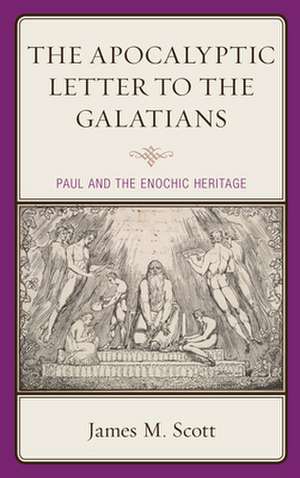APOCALYPTIC LETTER TO THE GALACB
Autor James M. Scotten Limba Engleză Hardback – 17 mai 2021
Preț: 804.76 lei
Preț vechi: 1102.42 lei
-27% Nou
Puncte Express: 1207
Preț estimativ în valută:
153.99€ • 160.78$ • 127.45£
153.99€ • 160.78$ • 127.45£
Carte tipărită la comandă
Livrare economică 05-19 aprilie
Preluare comenzi: 021 569.72.76
Specificații
ISBN-13: 9781978705463
ISBN-10: 1978705468
Pagini: 498
Dimensiuni: 152 x 229 x 37 mm
Greutate: 0.82 kg
Editura: Rowman & Littlefield
ISBN-10: 1978705468
Pagini: 498
Dimensiuni: 152 x 229 x 37 mm
Greutate: 0.82 kg
Editura: Rowman & Littlefield
Notă biografică
James M. Scott is professor of religious studies at Trinity Western University, British Columbia, Canada. His most recent book is The Apocalyptic Letter to the Galatians: Paul and the Enochic Heritage (2021).
Cuprins
Descriere
In this book, James M. Scott argues that there is an essential continuity between the letter to the Galatians and Paul's Jewish past, and that Paul uses the Epistle of Enoch (1 Enoch 92-105) as a literary model for his own letter.
